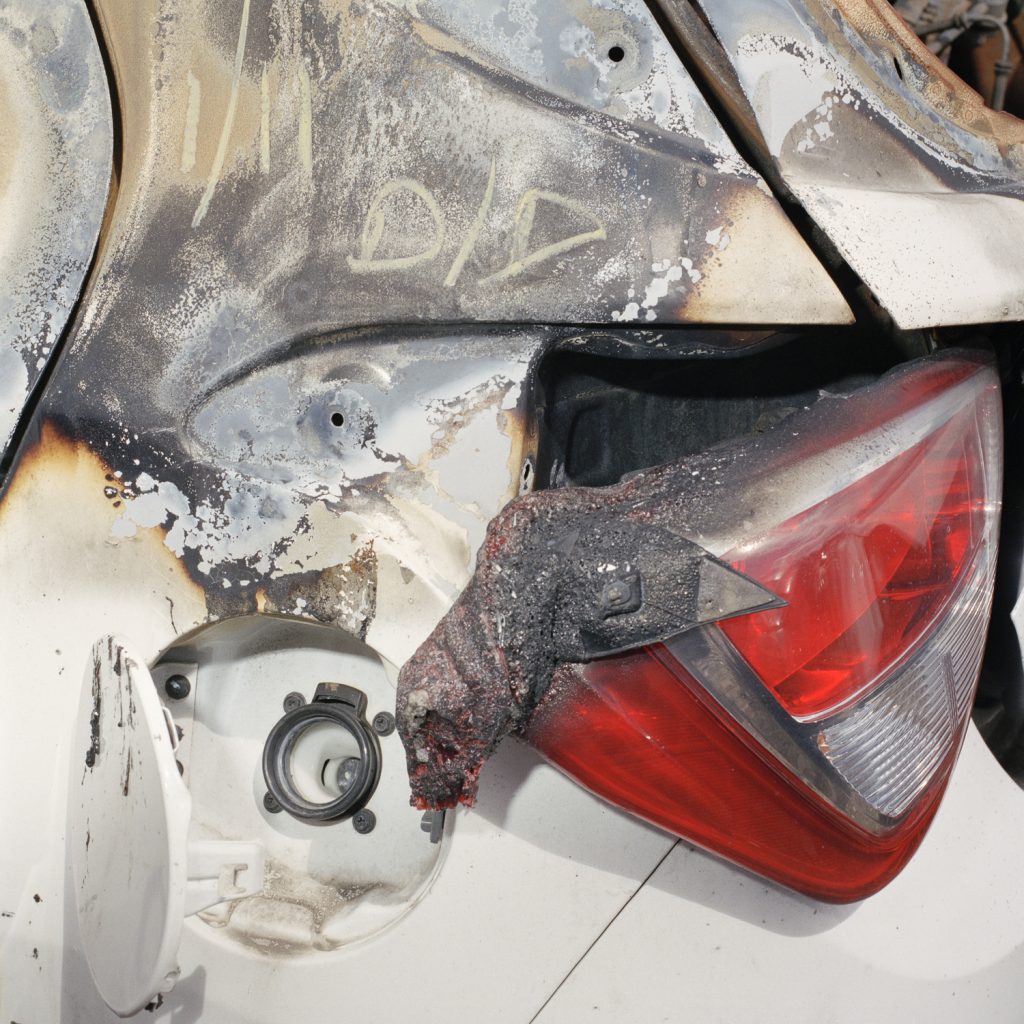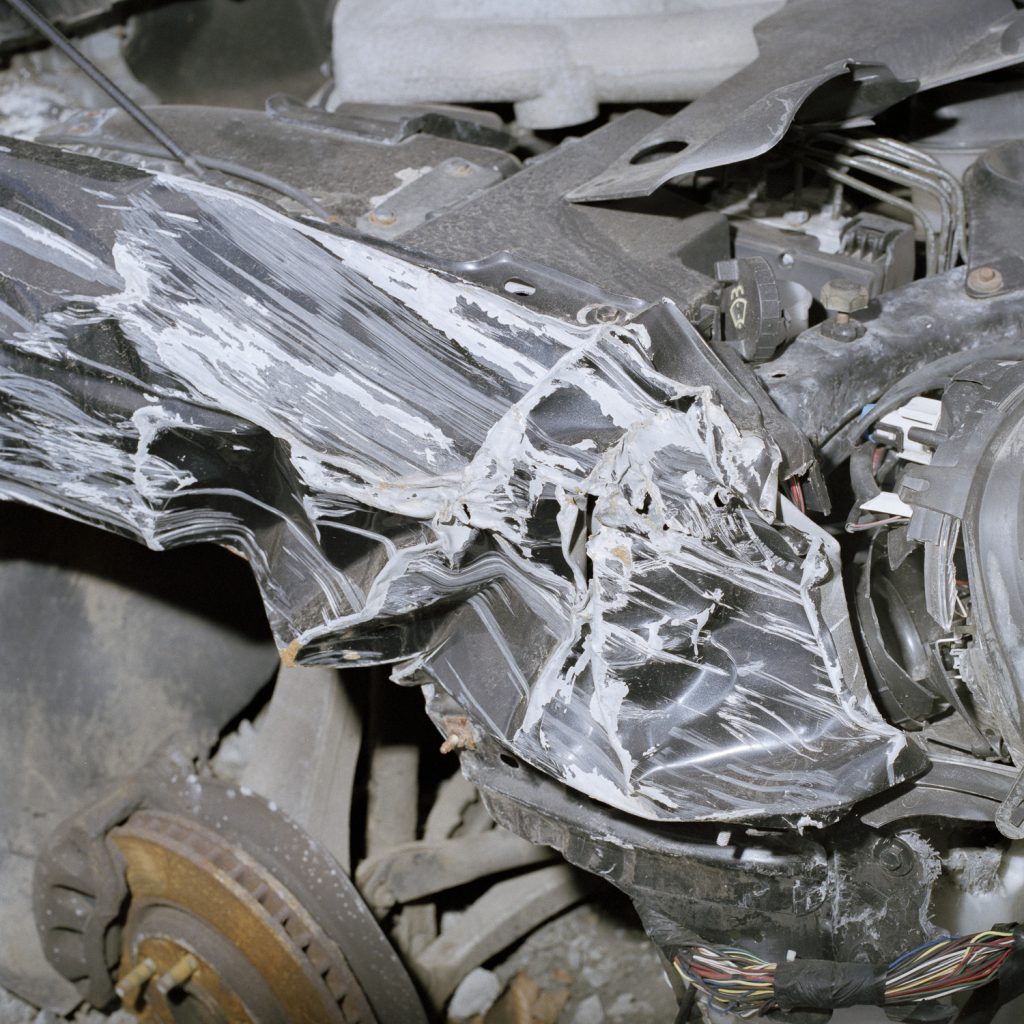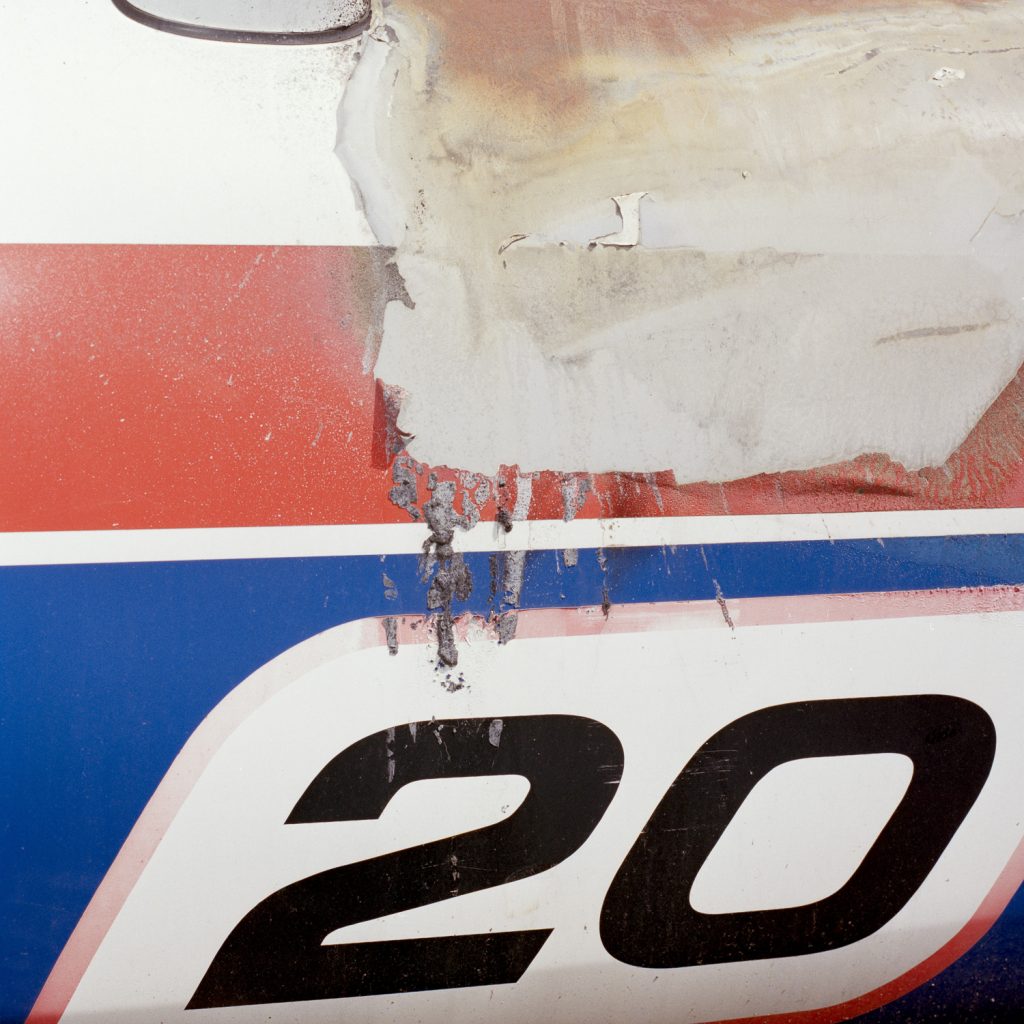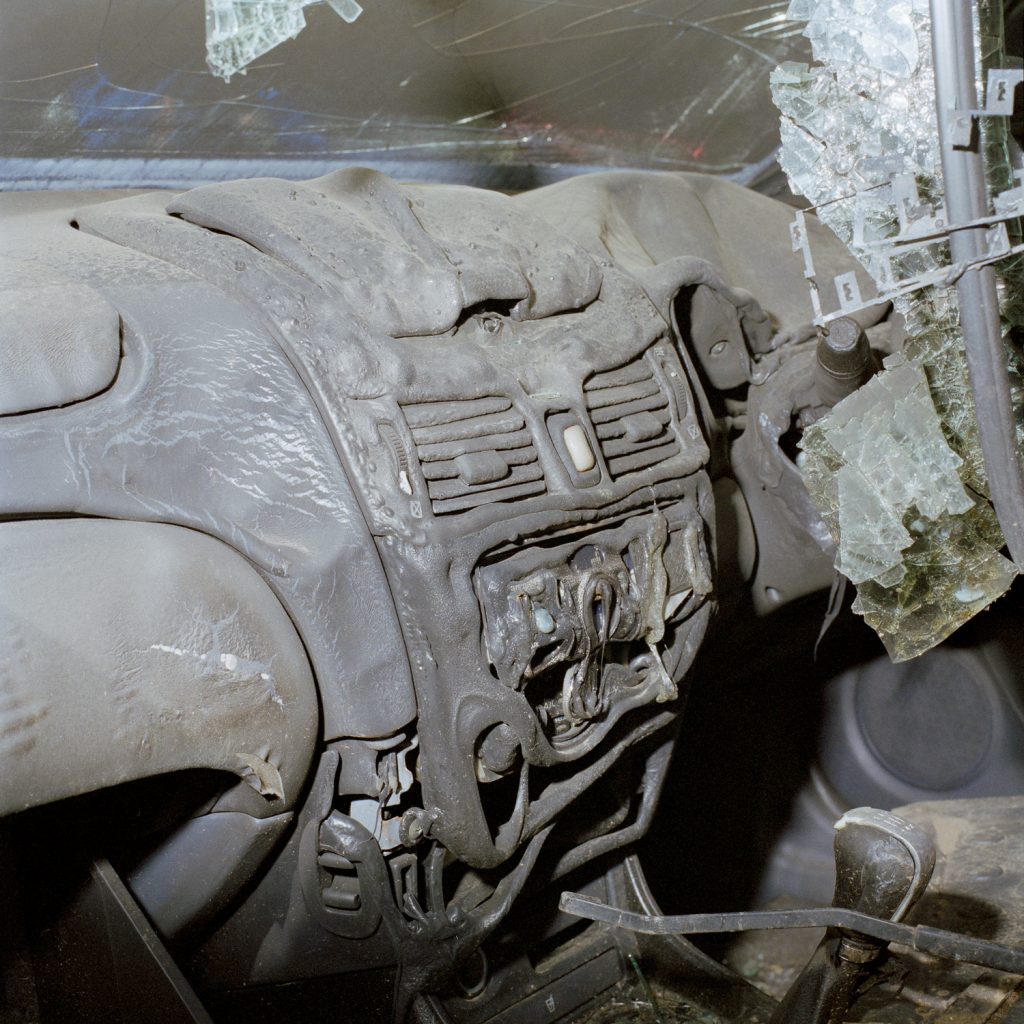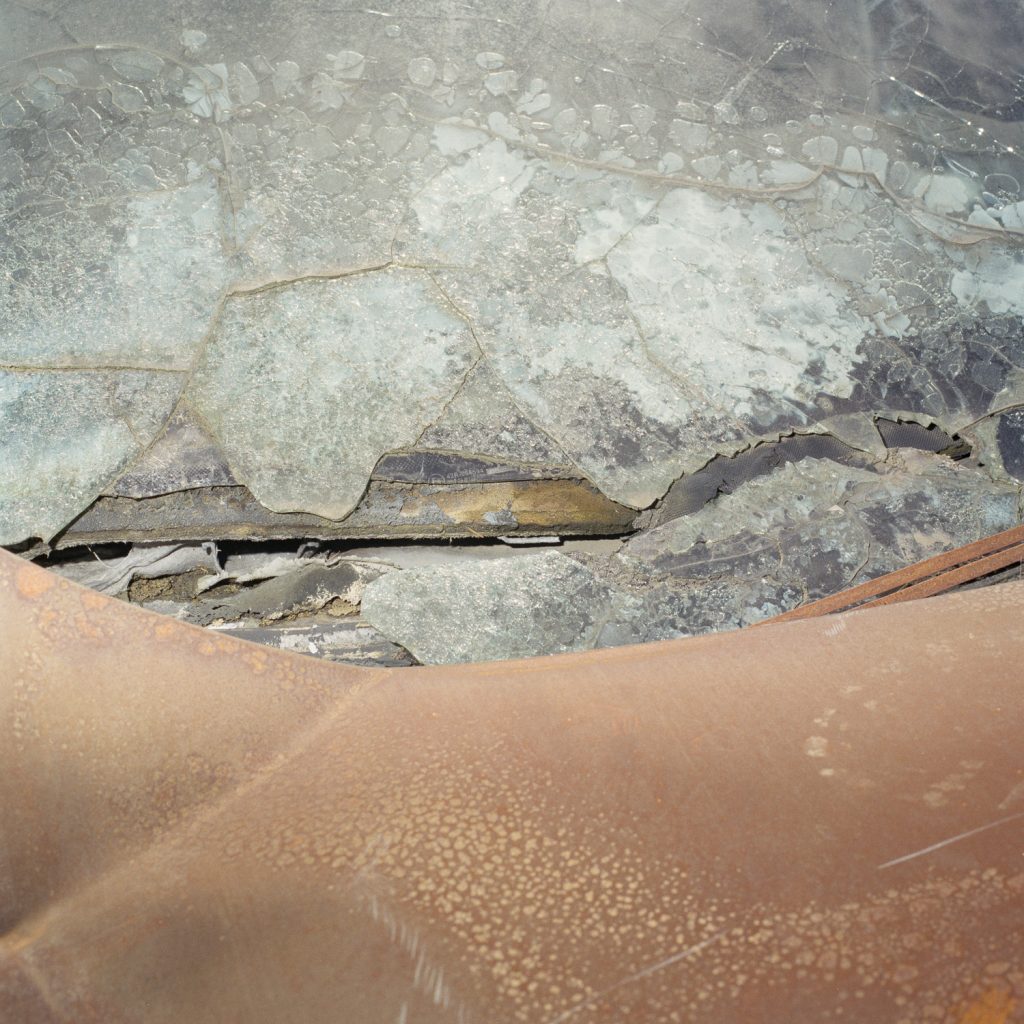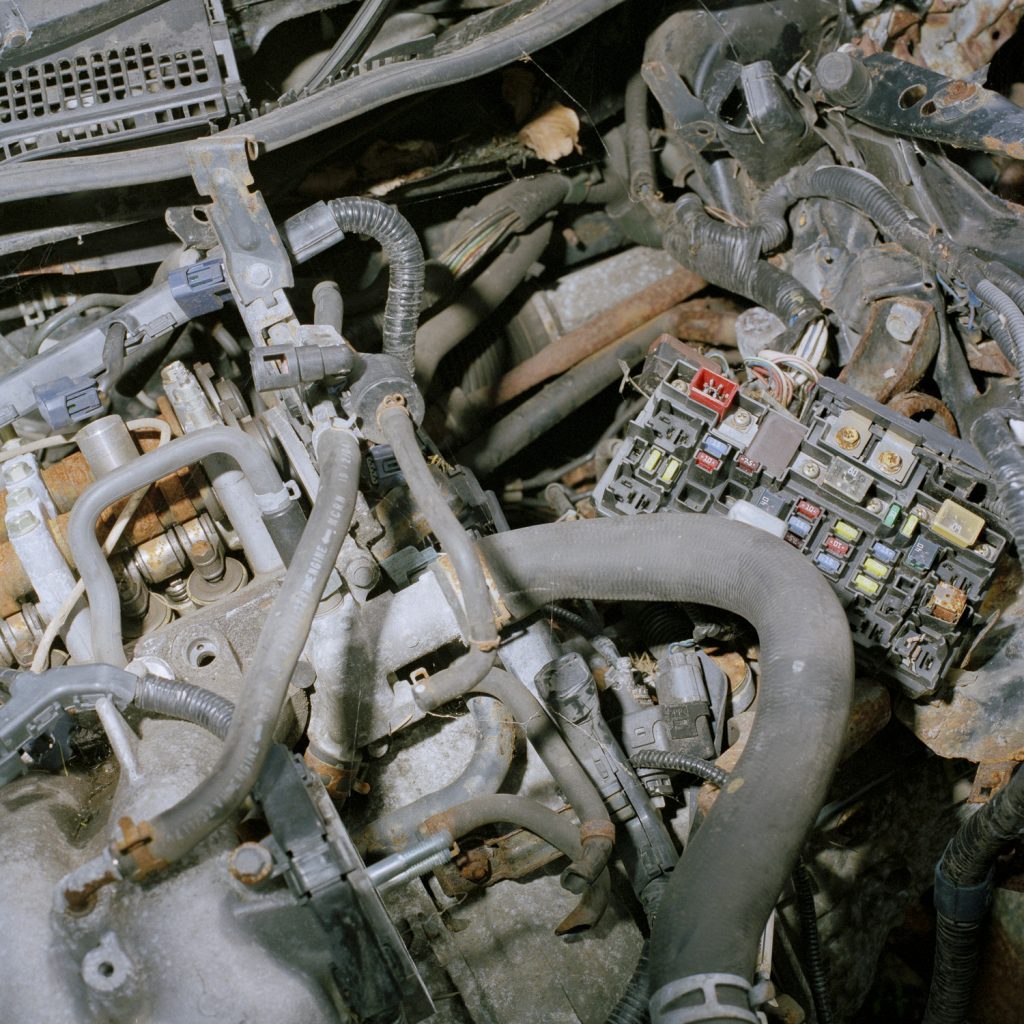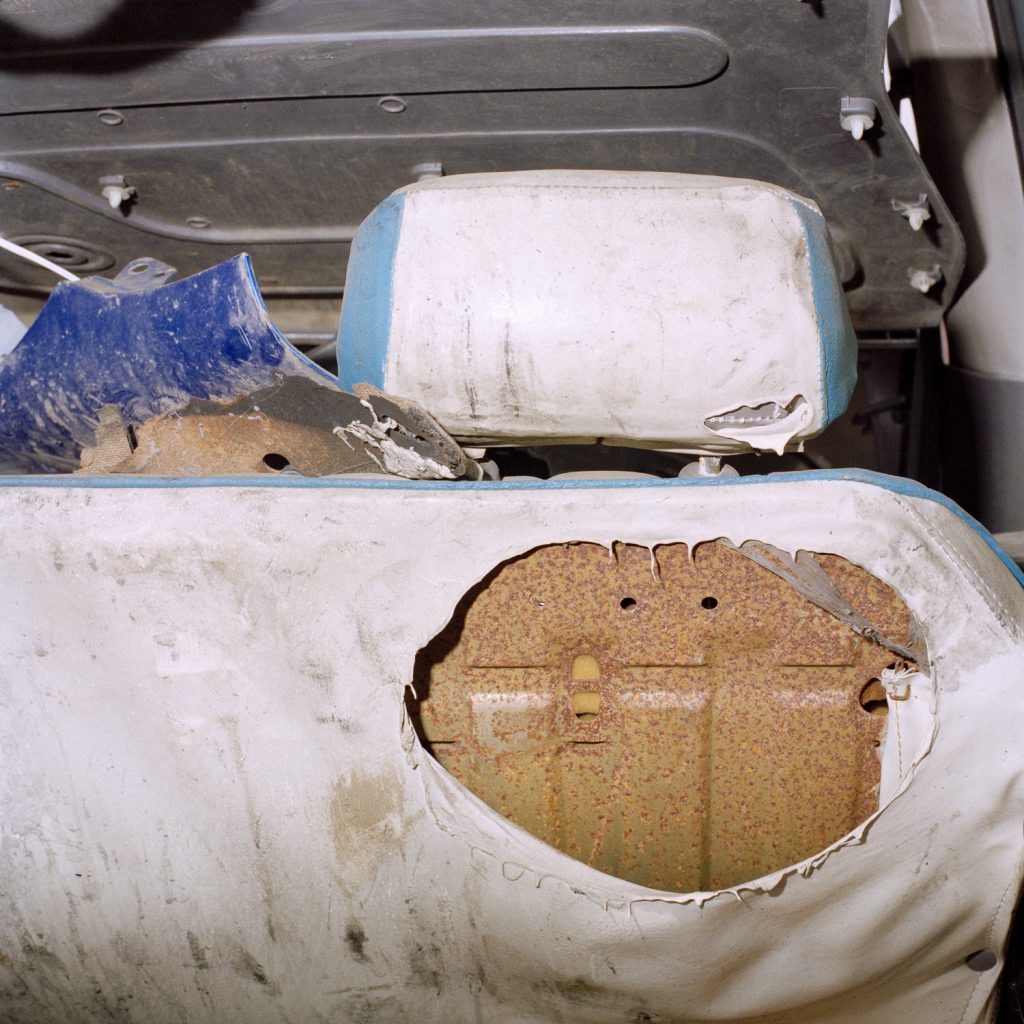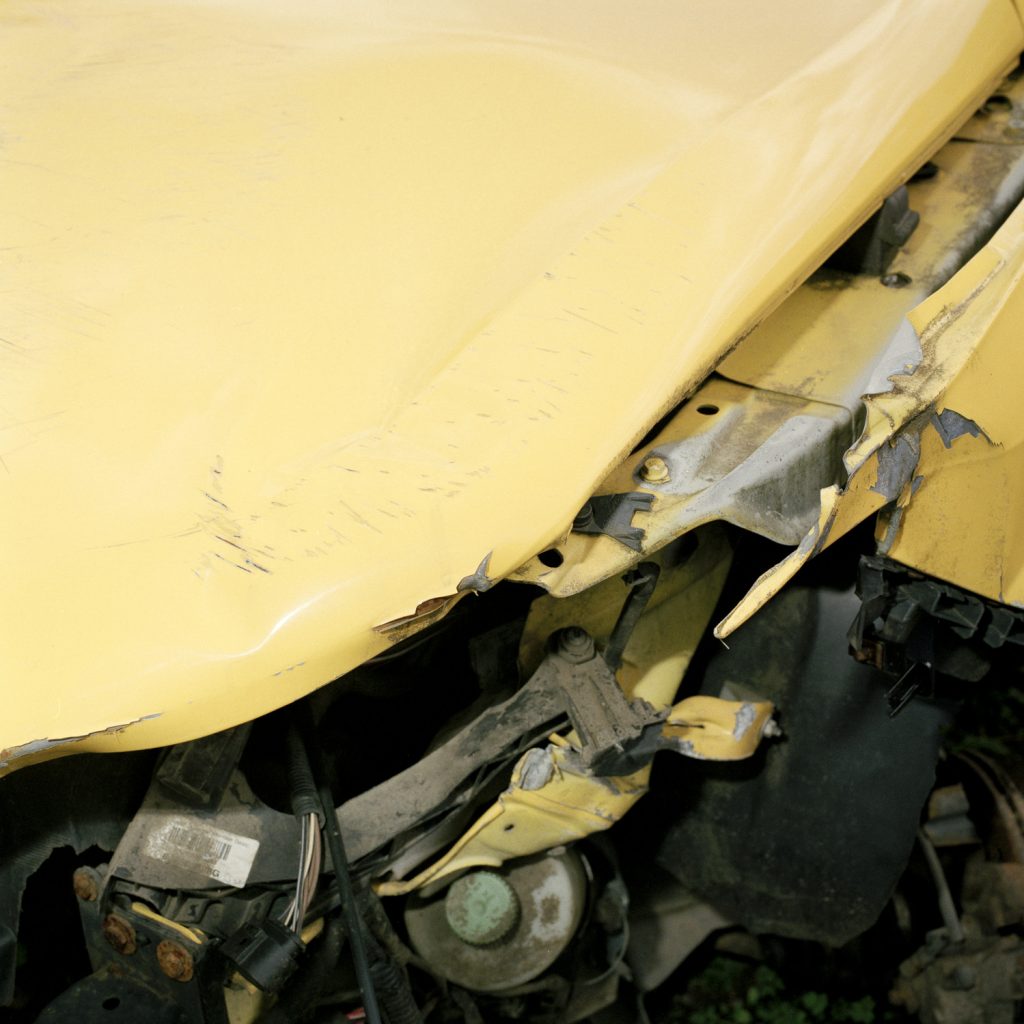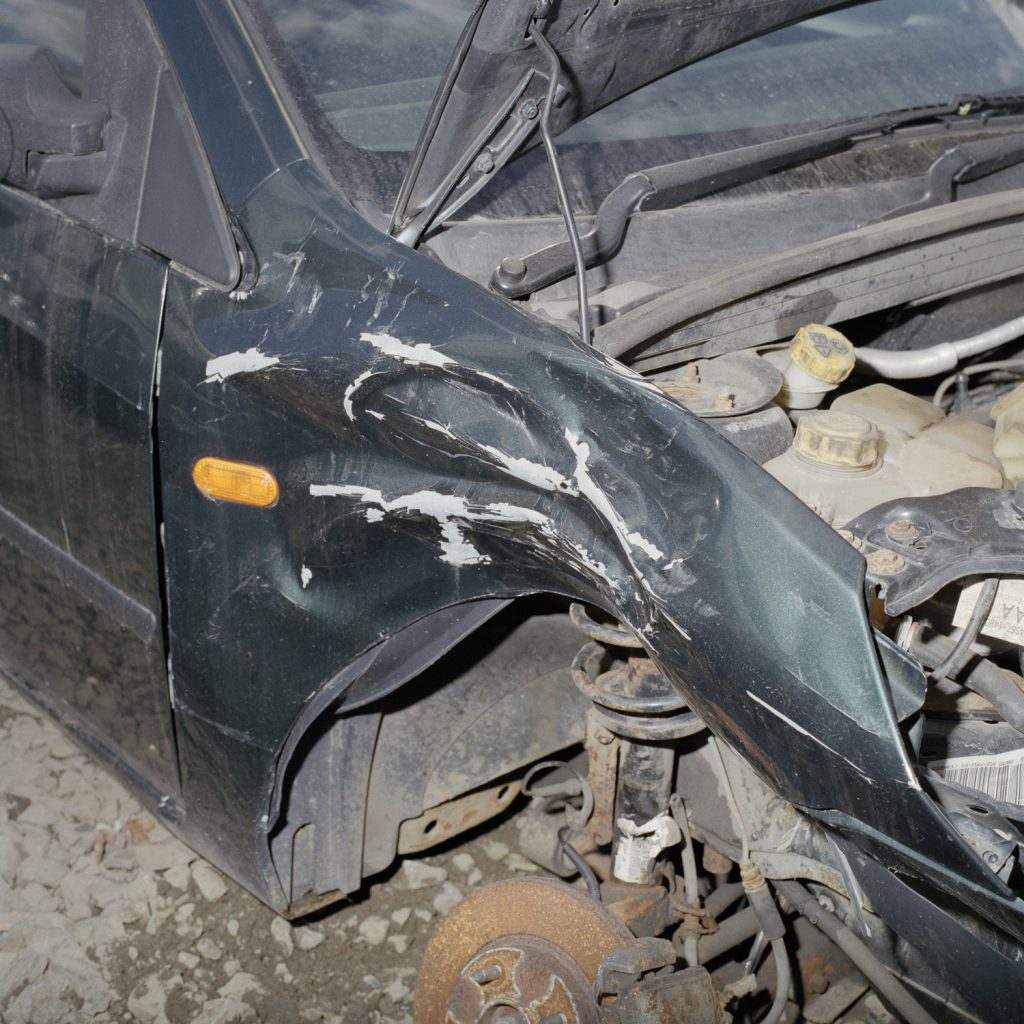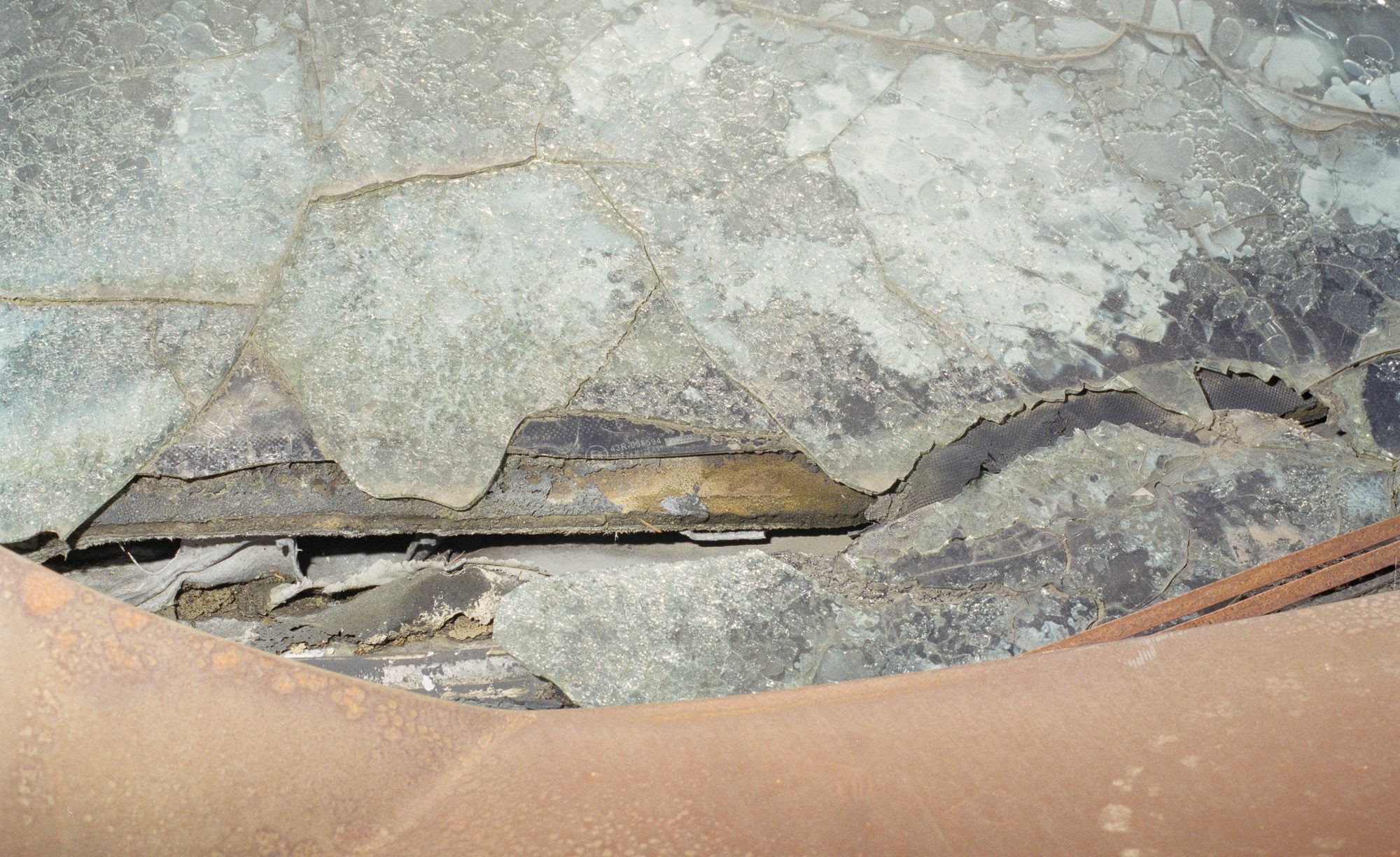
Alex Hall
The Edinburgh College of Art photography graduate casting a critical eye over technological progress
Alex Hall’s work first grabbed our attention at the Edinburgh College of Art degree show back in June. The photography graduate’s haunting and poetic ‘Trauma’ series urges us to reflect on the fragility and violence of our increasingly technological landscape. It’s an uncomfortable and thought provoking study of automation, human labour, the future of humanity and — as Alex frankly puts it — “whether we’re headed towards dystopia, and if so, so what?”
“I read a lot about a chosen subject before beginning to take any pictures,” he tells us. It’s a practice heavily grounded in research, that draws from a vast array of disciplines and theoretical backgrounds “from literature … current socio-political concerns, cinema … and even music.” This conceptual grounding forms part of an organic process in which the research creates a kind of “melting pot of concepts and flavours” from which “the project and the most interesting ideas surface from the mass of information.”
Alex’s decision to pursue photography stemmed from a realisation that he’d “rather wander and explore the outside world than explore my mind while sitting at a desk or working at a canvas.” It was this impulse to explore which lead him to discover the site that became the subject of ‘Trauma’. “It was only when accidentally stumbling on a scrapyard of cars that I realised I had found a subject that could bind all these ideas,” he explains. This location — “a Fordist graveyard for an industrial age, where airbags loll like dead tongues from dashboards” — could finally make tangible the technological acceleration and social upheaval that he’d been studying.
Capturing the site became a strict and precise procedure, the Hasselblad 6×6 camera and mounted flash injecting the images with a harsh, almost forensic tone. The rigidity of this process was vital in “establishing a sense of repetition, the idea of endless manufacture that spills out into our lives and our physical environments.” Echoing the never-ending march of contemporary mechanical and informational production that lies at the heart of automation, the unnerving repetition urges us to reflect on the precarity and violence it ushers in. Ultimately, by capturing these ghostly shells of scrapped cars, he urges us to consider what bodies might me disposed of next in our ceaseless pursuit of progress.
The aesthetic simplicity of the photographs is symptomatic of the drive to “represent complex ideas through simple forms” at the core of Alex’s practice. It’s an approach that provides concrete points of connection to otherwise abstract subject matter. For Alex, distilling vast themes into simple forms not only provides an entry point for the viewer but also offers them alternative ways of seeing those subjects. These alternative perspectives allow us to step back from the issue, readdress our relationship with it and raise different questions. Ultimately, the repetitive yet unfamiliar images of the ‘Trauma’ series aim “to present something that invite[s] the viewer to take a closer look, to peel away layer after layer.”
It’s a project that’s rightly earned Alex recognition, having been selected for the RSA New Contemporaries exhibition in 2019. He plans to use the opportunity to expand his study, showing work from ‘Trauma’ alongside newly developed digital vector prints based on the human body. We’re keen to see how this fascinating project develops and what Alex has in store for us next.
